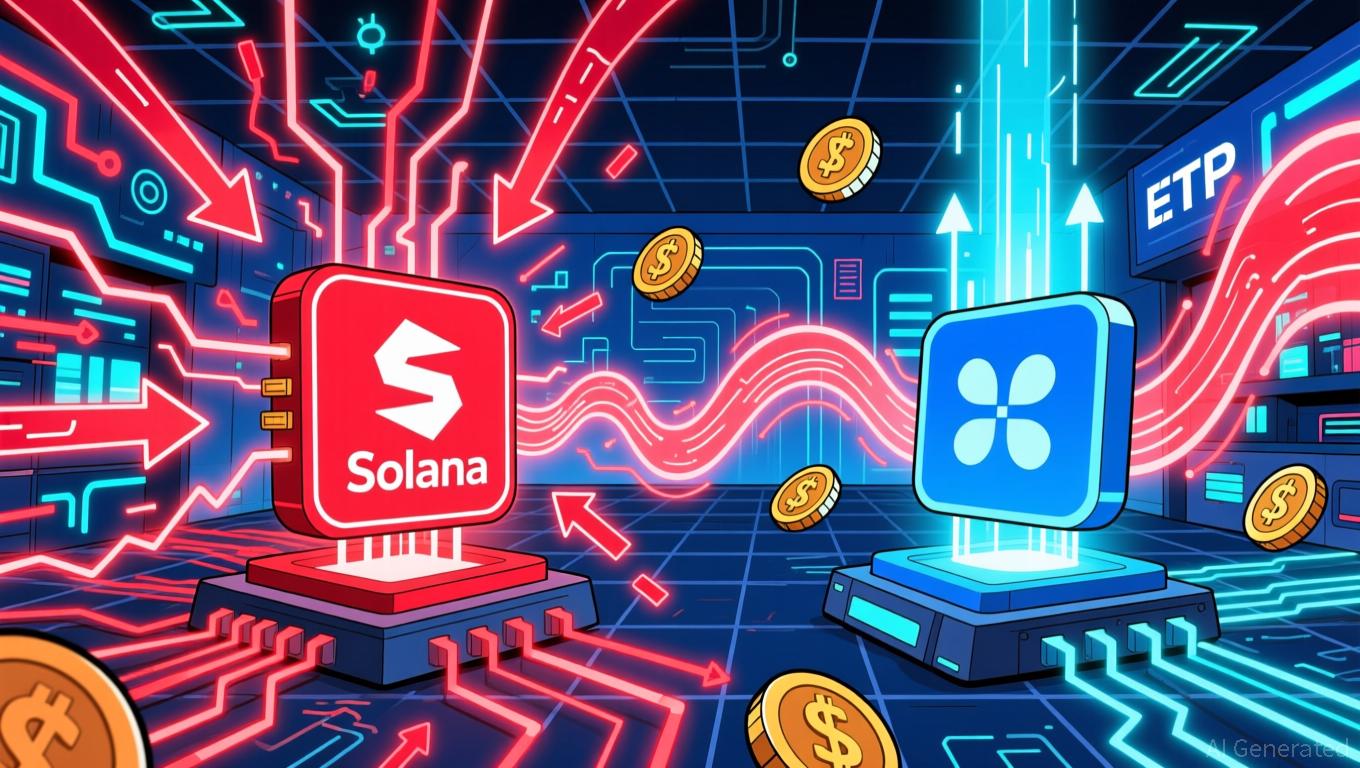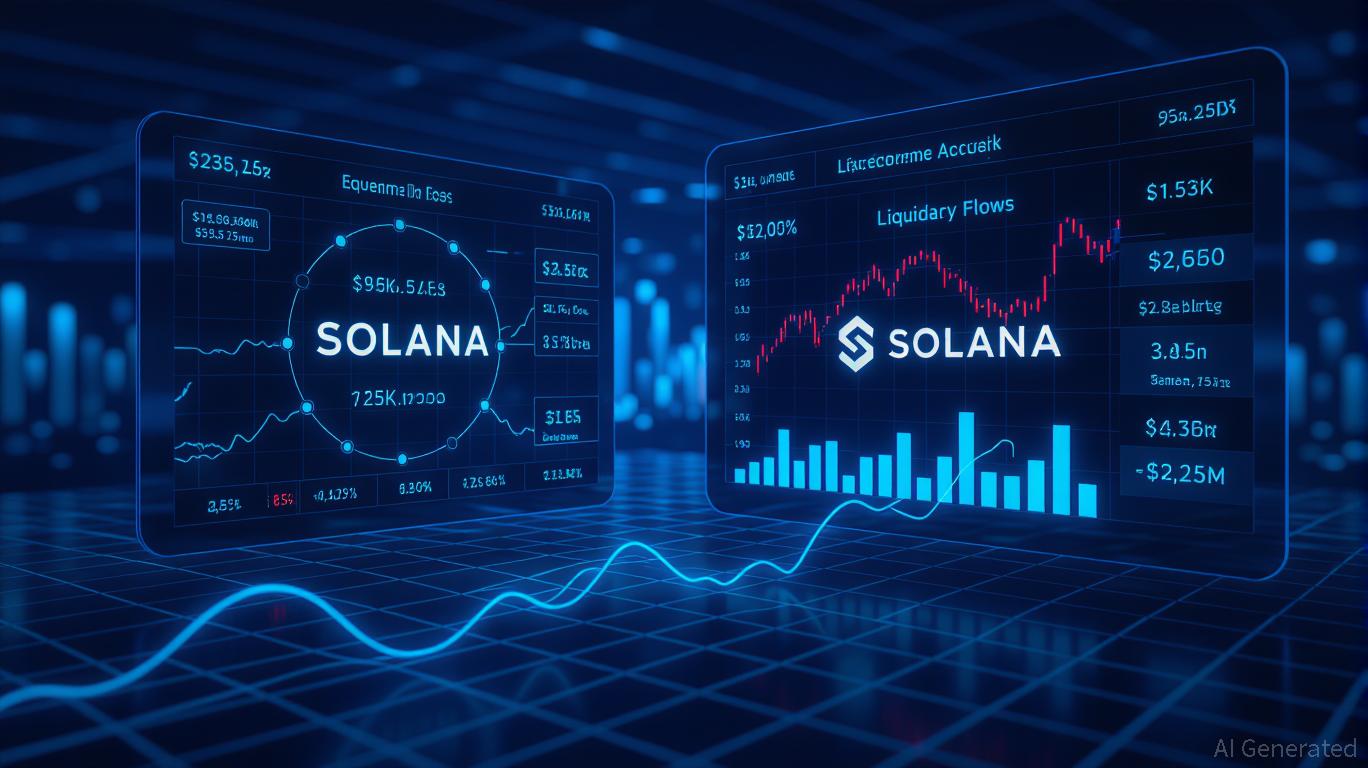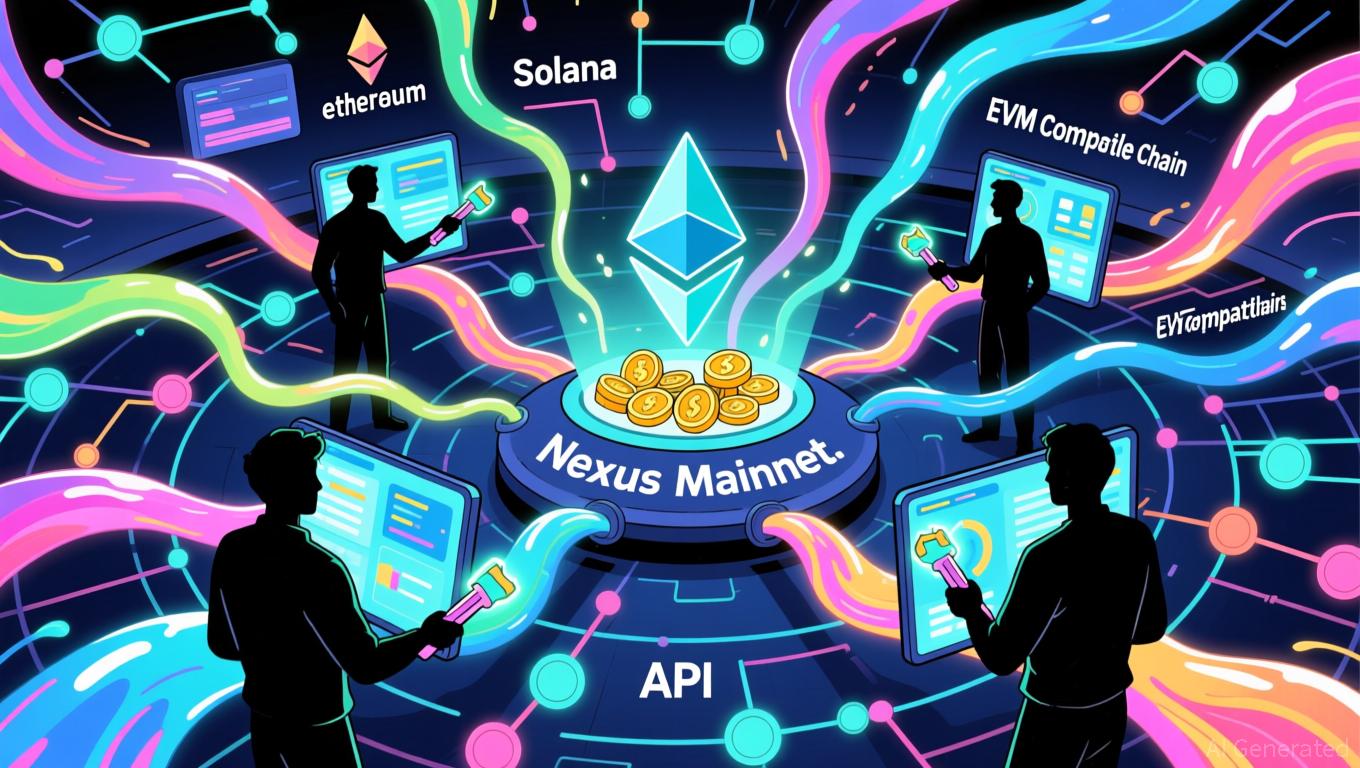Turkmenistan's Approach to Cryptocurrency: Navigating Government Oversight and Public Confidence
- Turkmenistan will implement strict crypto regulations from 2026, requiring miner registration, exchange licensing, and anti-money laundering protocols under President Berdimuhamedov. - The framework mirrors Central Asian neighbors' approaches but prohibits anonymous transactions, national symbols in branding, and hidden mining operations. - While aligning with global crypto oversight trends, the law maintains state control over digital assets, raising questions about market viability amid Turkmenistan's
Turkmenistan Introduces Strict Crypto Regulations
Turkmenistan is set to legalize cryptocurrency trading and mining, introducing a highly regulated system that marks a major policy change for one of the world’s most closed economies. Starting January 1, 2026, the country will enforce a new law overseeing virtual assets, which mandates that miners must register and exchanges must obtain licenses. The legislation also bans anonymous transactions and secret operations.
Signed into law by President Serdar Berdimuhamedov, these regulations establish robust anti-money laundering (AML) measures. This includes mandatory know-your-customer (KYC) checks and requirements for custodial services to use cold storage. While cryptocurrencies will not be accepted as official currency, they will be regulated under civil law, with the central bank given broad powers to supervise blockchain technology and enforce emergency redemptions for asset-backed tokens.
Key Provisions and Restrictions
- All crypto miners and exchanges must register with the Central Bank of Turkmenistan, facing penalties for violations.
- Unauthorized mining—such as using unapproved computing resources—is strictly forbidden.
- Crypto businesses are not allowed to use national symbols in their branding.
- Advertising by exchanges is tightly controlled, requiring clear risk warnings and banning any suggestion that crypto is a quick way to get rich or the use of minors in promotional content.

Regional and Global Context
Turkmenistan’s approach is similar to those adopted by other Central Asian countries, such as Kazakhstan and Kyrgyzstan, which have also implemented licensing systems and stablecoin regulations. Globally, governments are increasingly formalizing crypto oversight in response to rising adoption and regulatory ambiguity. For example, South Korea has broadened its AML regulations to include small crypto transfers, while Switzerland has postponed the rollout of the OECD’s Crypto-Asset Reporting Framework until 2027. The United Kingdom and Sweden are also reassessing how they classify crypto-related risks, reflecting a wider effort to standardize rules internationally.
Challenges and Outlook
Despite the new legal framework, Turkmenistan’s tightly managed economy raises concerns about the feasibility of its crypto plans. The nation, which depends largely on natural gas exports, has a history of strict capital controls and limited financial freedom. The effectiveness of the new regulations will likely depend on how they are enforced, especially since the central bank has the authority to cancel token issuances and require emergency redemptions.
Analysts point out that the law’s emphasis on government oversight is consistent with Turkmenistan’s political system, but it may discourage foreign investors who prioritize transparency. As the 2026 rollout nears, the country’s regulatory experiment will be closely watched for its attempt to combine technological innovation with strong state control. Turkmenistan’s success in fostering a viable crypto sector will depend on its ability to strike a balance between regulatory intervention and market growth—a challenge faced by many countries as they navigate the evolving landscape of digital assets.
Disclaimer: The content of this article solely reflects the author's opinion and does not represent the platform in any capacity. This article is not intended to serve as a reference for making investment decisions.
You may also like
Ethereum News Update: Amundi’s Integrated Approach Connects Blockchain with Conventional Financial Regulations
- Amundi, Europe's largest asset manager, launched its first Ethereum-based tokenized money-market fund, enabling 24/7 settlements and transparent record-keeping via blockchain. - The hybrid model, developed with CACEIS, combines traditional fund operations with blockchain-based ownership, preserving regulatory compliance while expanding investor access. - Ethereum's dominance in stablecoin and RWA transfers ($105.94B in 30 days) underscores its role in accelerating tokenization, with Amundi positioning it

XRP News Today: XRP ETFs Drive Price Increases, While Solana ETFs Ease Selling Pressure
- XRP ETFs raised $587M in inflows since late November, outpacing Solana's $568M as investors favor altcoins with regulatory clarity and utility. - Bitwise XRP ETF's $107M debut and zero-fee strategy drove momentum, while Solana ETFs faced $156M weekly outflows due to network reliability concerns. - XRP's inflows acted as a "battering ram" pushing prices above $2.27, contrasting Solana's ETFs which merely dampened sell pressure without reversing its decline. - Analysts predict XRP could reach $3 by Decembe

The Federal Reserve's Change in Policy and Its Impact on Alternative Cryptocurrencies Such as Solana
- Fed's 2025 policy shifts, including rate cuts and stablecoin regulations, are reshaping altcoin markets by altering liquidity and risk appetite. - Solana's Alpenglow upgrade (150ms finality, 1M TPS) addresses scalability issues, aligning with Fed's AI-driven infrastructure focus despite network reliability concerns. - Institutional inflows into Solana ETFs ($100M AUM) contrast with retail caution (78% HODLers in red), highlighting divergent risk perceptions amid 30% price corrections. - Divergent ETF flo

Avail's Intent-Driven Nexus Addresses the Issue of Fragmented Liquidity Across Chains
- Avail launches Nexus Mainnet, a cross-chain solution unifying liquidity across Ethereum , Solana , and EVM networks. - The intent-solver model enables seamless asset transfers without technical complexities, streamlining user experiences. - Developers gain modular tools for multichain integration, reducing costs as cross-chain liquidity demand grows. - Nexus abstracts execution layers, offering unified balances and execution while addressing fragmentation challenges. - With $50B+ in cross-chain activity
